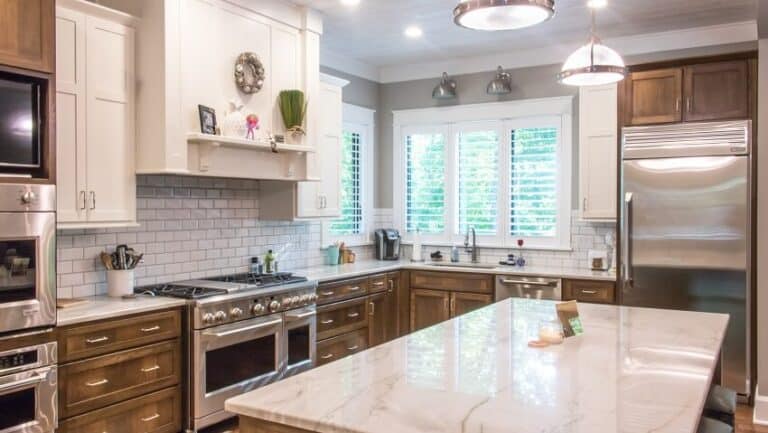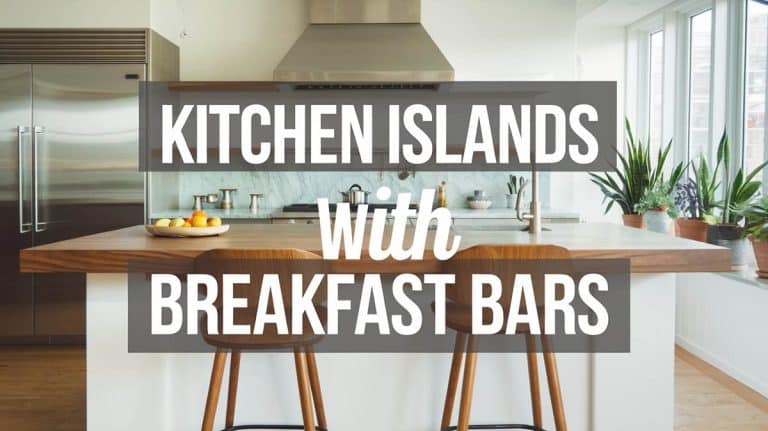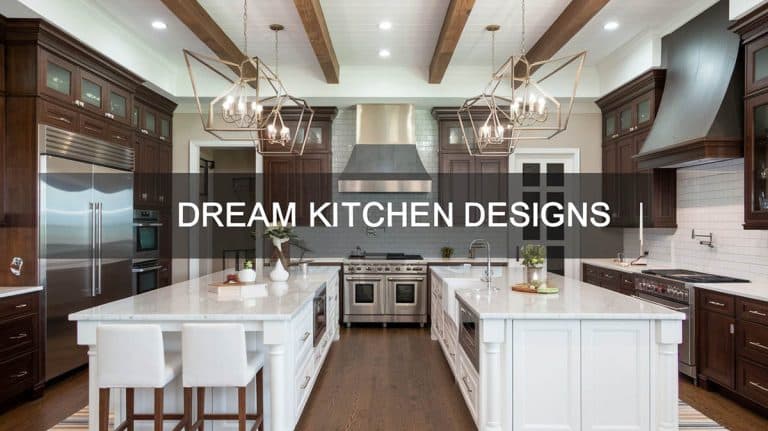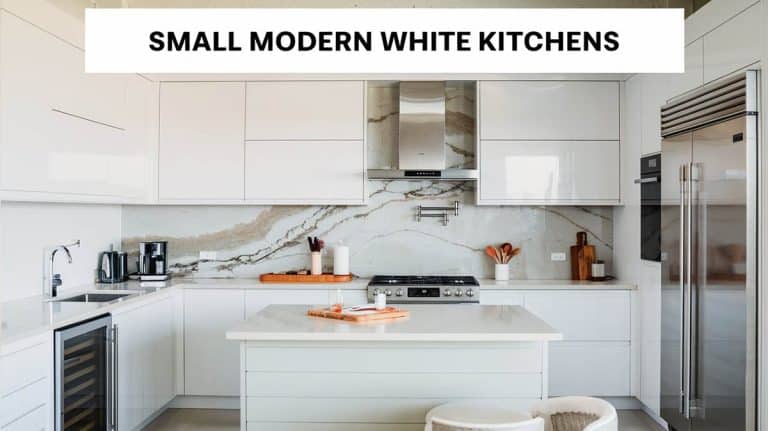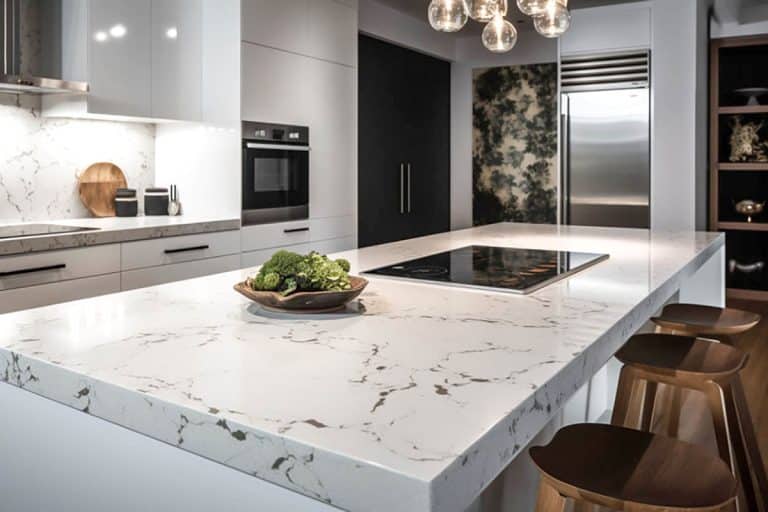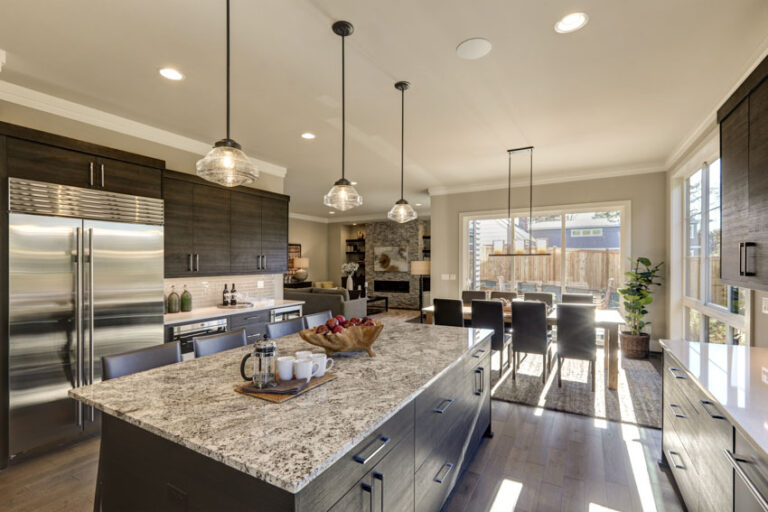Is Engineered Quartz Countertops Right For Your Kitchen?
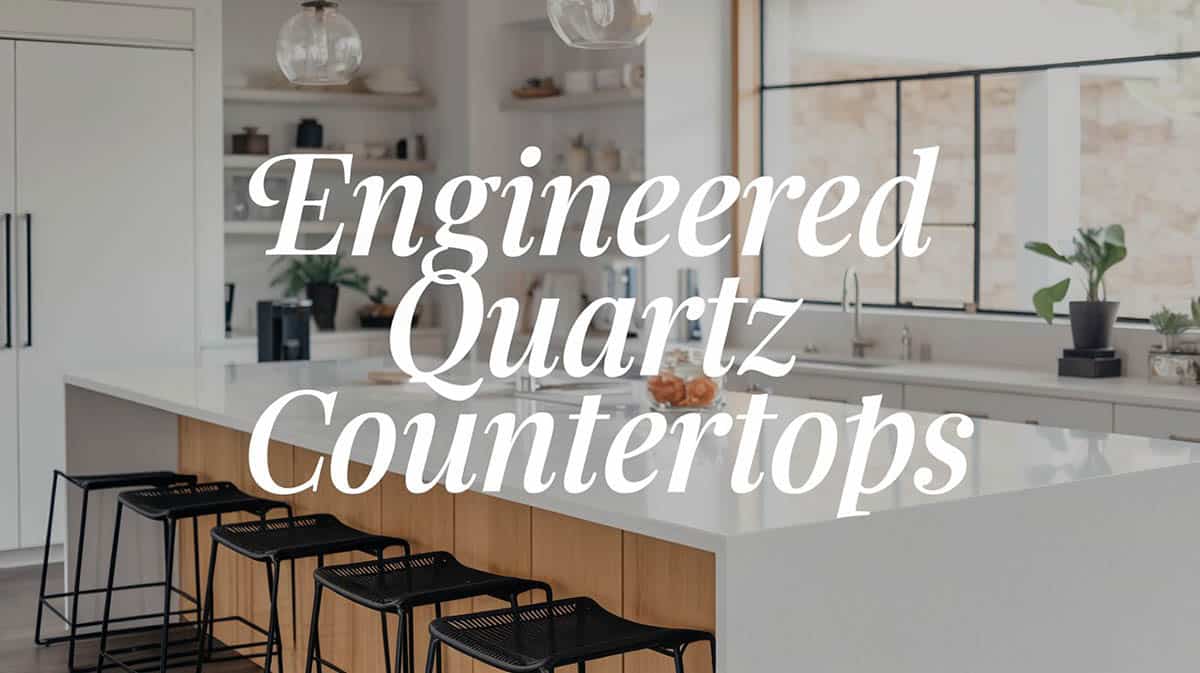
Countertops are essential to the room design and layout of bathrooms and kitchens. Engineered quartz countertops are popular as they are durable and can match almost any home design style. There are many different types of materials that can be used for kitchen countertops. What’s important is that they provide you with a durable surface that is beautiful and easy to clean.
Natural stones – like granite or marble – are considered good countertop materials and sought after because natural stone colors and patterns are visually appealing. However, one alternative to an all-natural stone countertop that is rising in popularity is engineered quartz. Engineered quartz has many characteristics of natural stone – including the aesthetic appeal, but it also has a few other properties that make it an ideal material for countertops.

Upload a photo and get instant before-and-after room designs.
No design experience needed — join 2.39 million+ happy users.
👉 Try the AI design tool now
What Is Engineered Quartz?
Engineered quartz is a material that is created by mixing the stone with flexible resins and pigments. It is a crystalline mineral and is actually the most abundant mineral on earth. It is known for its durability, heat resistance, and the vast array of colors that it can come in. Some varieties of quartz are considered semi-precious gemstones and are prized for their luster, sheen, and color. Examples of semi-precious gemstones that are varieties are amethysts, rose quartz, agates, jasper, tiger’s eye, and onyx.
Engineered quartz is made by mixing ground stone and resins, plus pigments, to create slabs of material. Most engineered slabs blend 90 to 94 percent ground quartz with 6 to 10 percent resins. Engineered quartz slabs are not made to order, and the manufacturer creates slabs of set sizes and thicknesses. The slabs are made to fit a specific project requirement and are installed in pieces.
This material is easy to maintain and clean, which is an important characteristic of a kitchen or bathroom countertop. Any liquids that you might spill in the course of cooking or while going through your cleansing routine can be quickly mopped up by just wiping the surface. To maintain your engineered quartz countertop, you just have to wipe it down daily. Don’t use abrasive cleaners; use a soft cloth and wipe the counter using warm water and soap. If there’s some staining, you can try using a nonabrasive cleaner.
Abrasive cleaners can scratch or wear down the finish of the countertop, but that’s the only real thing that can damage the engineered quartz. If you are careful with your countertop, the finish should last as long as the countertop does.
Benefits of Engineered-Quartz Composite Countertops
Engineered quartz is considered a composite material because it is a mixture of ingredients: quartz, resins, and pigments. It’s great material to use in countertops because it is stain and scratch-resistant. On its own, it is already a sturdy material, but the resins used in increase the durability and the lifespan of the material.
They have more consistent colors – Since engineered quartz is a manufactured material, the color and texture are more consistent than other all-natural materials.
Many manufacturers make engineered quartz slabs that mimic the look of natural stone but with more even colors and smoother patterns that are found in nature.
They are durable and low maintenance – Since the slabs contain resins, they won’t chip or crack easily. Many natural stone countertops require annual refinishing; this is not the case with engineered quartz. These slabs won’t require sealing and offer a solid surface compared to natural stone, which is often porous.
It is a non-porous material – Compared to natural stone, engineered quartz is more solid and is actually non-porous. The fact that it is non-porous makes it less prone to staining and leaves you with a germ-resistant surface.
Pores in natural stone mean that if you spill liquid on the surface and don’t clean it up quickly, then it will be absorbed by the stone, staining it. These pores can also provide a place for germs and bacteria to crow.
It is a green building material – If you are concerned about the impact of your activities on the planet, you should consider engineered quartz countertops as they are considered “green”. The materials used to create them are waste by-products from quarrying. Also, the resins used are usually mostly natural ingredients.
Technically, the resins used in engineered quartz are “biolenic resins” which are a combination of artificial and mostly organic resins. The organic resins are created from non-food vegetable oils.
The Difference Between Engineered and Natural Quartz
As we mentioned before, quartz is a naturally occurring mineral. Though there is a lot in the world, it’s not really used as a building material on its own. Rather, it’s engineered quartz, a composite of resins that can be shaped and used in building projects.
They are not exactly wrong if someone says that they have quartz countertops. As we said, they are at least 90 percent made of stone. However, they do not have pure stone countertops.
What Other Uses Are There for Engineered-Quartz Materials?
In case you’re wondering, engineered quartz is also used as a flooring material. These floors are popular in shopping malls and airports because it’s easy to source in large quantities and are also durable enough to stand up to all the foot traffic these places get.
Other uses include backsplashes and even walls. However, these tiles and slabs can be heavy, so you need to take that into account before you try and hang a large amount of vertically. See pictures of kitchens with quartz backsplash here.
How Much Does Quartz Cost?
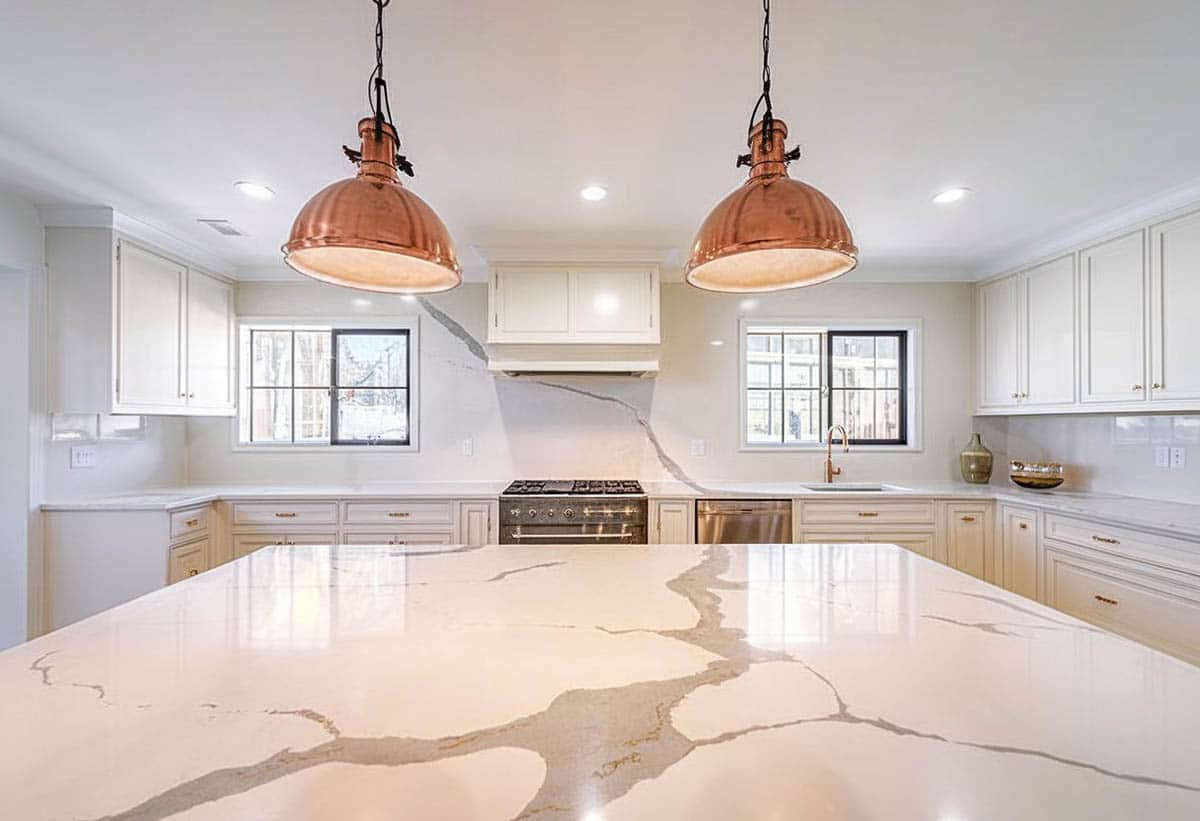
Kitchen with Calacatta quartz countertops
Several factors will affect the costs of putting up engineered quartz countertops. The first would be the size and the number of countertops you want, while the second would be the style.
The size and style of the slabs that you will need will vary according to the manufacturer, but in general the cost should be between $70 to 120 per square foot of engineered quartz to be used.
Is Quartz Cheaper Than Granite?
Granite is a natural stone material that is known for its durability and for coming in a variety of colors and patterns. Many manufacturers of engineered quartz make their slabs resemble granite. Granite will cost you about $80 to $175 per square foot of material, so they are slightly cheaper than granite, though many might feel that the difference in price is minimal.
While in the short term, picking between granite vs quartz won’t really affect your budget, in the long run, engineered quartz will come off as cheaper.
While granite is a material that is also known for durability, engineered quartz is considered a “better investment” by some as it is easier to maintain. Granite is porous, so it is more prone to staining if liquid is spilled on it. You are also going to have a granite countertop resealed at least once a year.
Types of Quartz Styles
What makes engineered quartz such an attractive material for home improvement projects is the fact that it comes in such a wide variety of styles. Engineered quartz slabs come in a variety of colors as well as patterns and textures. Take note that engineered slabs often resemble natural stone, but the color and texture are more consistent than what is found in nature. Some people like this, but others don’t; you will have to compare and decide for yourself.
Quartz Colors
Quartz naturally occurs in almost every color. You can get clear stones or shades of white, gray, brown, black, yellow, green, red, pink, or purple. White quartz countertops with veining and marbling are very popular for recreating the look of natural stone slabs.
Some slabs will try to take advantage of natural color with clear or complementary resins or by mixing in pigments to highlight the quartz’s color.
The fact that you can easily add pigments to powdered stone means that manufacturers can create engineered slabs in almost any color found in nature. The most popular colors are earthy tones, but you can find more fanciful and playful shades as well.
Quartz Finishes
The most common type of finish for engineered quartz is a polished finish. A polish finish is accomplished by grinding down the surface of the slab using fine abrasives. This leaves you with a slab that has a reflective sheen and looks smooth and glassy.
Engineered quarts can also come in honed or matte finishes. This is achieved by not polishing or smoothing the slab to finish it, leaving you with a less shiny surface.
The advantage of a matte surface is that it’s less likely to show smudges and allows for deeper shades of color and more defined patterns.
Quartz Patterns
The patterns in engineered quartz come from the stone that is used. Depending on how it is ground, you can get a variety of patterns.
For example, coarsely ground quartz will produce a slab that has a flecked pattern, while finely ground materials will produce a smoother pattern. Manufacturers will also use colors and textures to create a pattern that mimics the use of natural stones such as marble or granite.
Is Quartz Heat Resistant?
Engineered quartz is a popular material for kitchen countertops because it is durable and resistant to scratching and dents. This makes it a good surface for food prep. However, even more than its durability, the fact that it is heat resistant makes it an ideal material for use in the kitchen.
Engineered quartz will not be affected by exposure to temperatures that are less than 300 degrees Fahrenheit. You can put down a hot pot or pan on the countertop without damaging the surface.
While engineered quartz is heat resistant, however, it’s not UV resistant. The resins used are not UV stable, so it is not recommended that you use it outdoors. If you do, make sure that there is some shade so the material is not directly exposed to the sun.
Quartz Brands
Engineered quartz was first developed back in 1963, by a company called Breton that was based in northeast Italy. They trademarked the process for creating engineered-quartz, calling it Bretonstone.
Every company that manufactures engineered quartz today uses Bretonstone technology. The company has licensed the process to more than 50 companies around the globe. While the style and sizes of the slabs manufactured by each company may vary, they all use the Bretonstone process.
Right now, the three biggest and most famous engineered-quartz manufacturers are Silestone, Cambria, and Caesarstone.
Silestone is based in Spain, and is the flagship brand of the company Cosentino. Silestone quartz countertops are known for providing slabs in vibrant and bold colors. They offer one of the longest warranties, 25-years, for their engineered-quartz products.
Cambria is an American company, one of the only big American companies in the business of manufacturing these surfaces; they have been based in Minnesota since 1936. See our gallery of Cambria quartz countertops here.
Caesarstone, is relatively new, having been formed in 1987. They are an Israeli company that are known for providing engineered-quartz slabs that incorporate semi-precious stones for some beautiful and really unique designs. Caesarstone quartz countertops are made of up to 93% real quartz materials.
Other options for popular brands are Daltile, LG Viatera, Pental, DuPont (they offer a line of quartz products under the name “Corian”)

